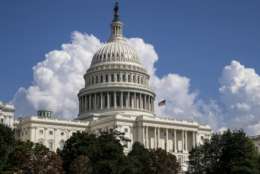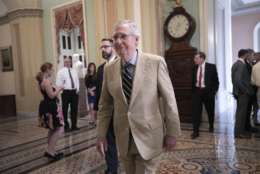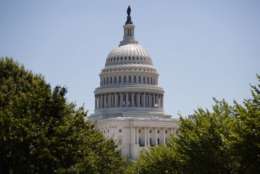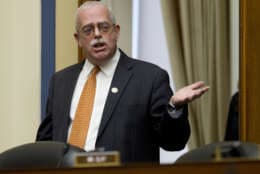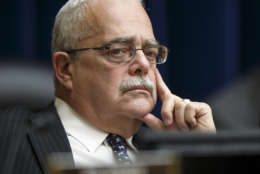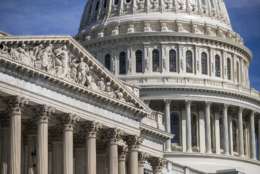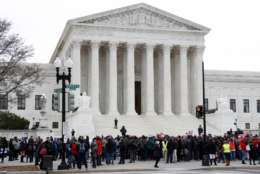Education Department
-
Congressional leaders say they have reached agreement on a plan to pass a stopgap government funding bill through Dec. 7, thereby avoiding a partial government shutdown on Oct. 1.
September 13, 2018 -
The Education Department's Federal Student Aid Office is launching a mobile app for the Free Application for Federal Student Aid (FAFSA) to help the agency gain a better view into applicants' pain points with the form.
August 28, 2018 -
The Senate last week passed a bill to fund the Defense Department, we all as the departments of Health and Human Services, Labor and Education.
August 27, 2018 -
In today's Federal Newscast, the Senate passed a bill funding the Defense Department until the end of September 2019, giving it a total of $675 billion for next year.
August 24, 2018 -
The Federal Labor Relations Authority reportedly told the American Federation of Government Employees this week that the Education Department did bargain in "bad faith" when it ended ground rules negotiations and implemented its own management document.
July 27, 2018 -
Following the recent rollback of telework agreements at the Education and Agriculture departments, two D.C.-area lawmakers have introduced legislation aimed at protecting and expanding existing agency telework agreements.
July 26, 2018 -
A strike by D.C.-area bus and subway personnel could give opponents of teleworking a taste of what the government would face in the event of a major weather event, natural disaster or terrorist attack.
July 19, 2018 -
In a new, exclusive online survey by Federal News Radio nearly 70 percent of respondents said they are very or somewhat concerned about possible changes to telework policies.
July 16, 2018 -
What's your agency doing about its telework program? We want to know. Follow the link below to take our anonymous online survey and to help us report on the future of telework in the federal government.
July 12, 2018 -
Heather White, federal employment lawyer and partner at the Federal Practice Group, thinks the proposed merger of the departments of Labor and Education may be a pretext to eliminate some of the functions of those agencies, water down their missions, and possibly even downsize their workforces.
July 06, 2018 -
With telework agreements scaled back at USDA and Education Department, the future of telework agreements at other agencies may also hang in the balance.
July 02, 2018 -
After spending years building its telework policy into one of the most popular programs of its kind, the Education Department will significantly reduce the ability of its employees to work from home.
June 26, 2018 -
This time one year ago lobbyists who represent feds and retirees were quietly hoping that Congress would tear off only a couple of chunks from the embattled Federal Employees Retirement System. Then a funny thing happened on the way: Nothing.
June 25, 2018 -
After a year and a half of study, the White House rolled out what it says would be the most ambitious restructuring in the federal government’s history.
June 22, 2018 -
The executive order directs agencies to renegotiate union contracts and suggests that agencies set more concrete time limits for these discussions.
June 01, 2018

